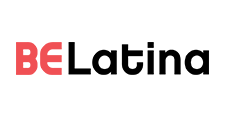The Dark Side of AI: New Study Exposes Potential Impact on Mental Health
September 1, 2023

Artificial Intelligence (AI) has infiltrated nearly every aspect of our lives, revolutionized industries, and reshaped the way we interact with technology. Yet, as the power of AI grows, so do its potential risks. A recent study, delving into the impact of AI tools on mental health, has unveiled a troubling reality—one that raises questions about the unintended consequences of technology on vulnerable individuals.
AI’s Alarming Impact: A Mental Health Wake-Up Call
While AI algorithms have been designed with the intent to improve user experiences and provide relevant content, a study highlighted by CNET suggests that popular AI tools could have adverse effects on mental health. The study, conducted by researchers at a prominent university, has found a correlation between the use of certain AI-driven platforms and negative impacts on mental well-being.
From Thinspo to Triggering Content: AI’s Unintentional Effects
The Washington Post delves deeper into the alarming side of AI, focusing on its role in perpetuating harmful content related to eating disorders. The phenomenon known as “thinspo,” or content that glorifies unhealthy body standards, has proliferated on social media platforms, with AI algorithms sometimes amplifying this content to susceptible audiences. Individuals struggling with eating disorders like anorexia and bulimia may find themselves exposed to triggering material, potentially exacerbating their conditions.
The Complexity of Content Moderation
AI’s involvement in content dissemination is a double-edged sword. While it can identify and remove harmful content, it can also inadvertently contribute to the problem by amplifying such content to users who might be vulnerable. The investigation raises important questions about the algorithms that power these platforms, urging tech companies to take a closer look at their content moderation strategies and the potential impact on users’ mental health.
Vulnerable Audiences: A Call for Responsible AI Use
The study’s findings underscore the urgent need for a more responsible and ethical approach to AI deployment, particularly when it comes to platforms that cater to vulnerable audiences. The power of AI to curate content based on user preferences can inadvertently create echo chambers that reinforce harmful ideologies or behaviors. This raises important ethical questions for tech companies, urging them to prioritize the well-being of their users over engagement metrics.
Balancing Innovation and Well-Being
As the tech landscape continues to evolve, finding the delicate balance between innovation and user well-being remains a paramount challenge. The study’s revelations serve as a wake-up call, prompting both tech developers and users to critically evaluate the impact of AI-driven content and its potential consequences on mental health.



















Comments